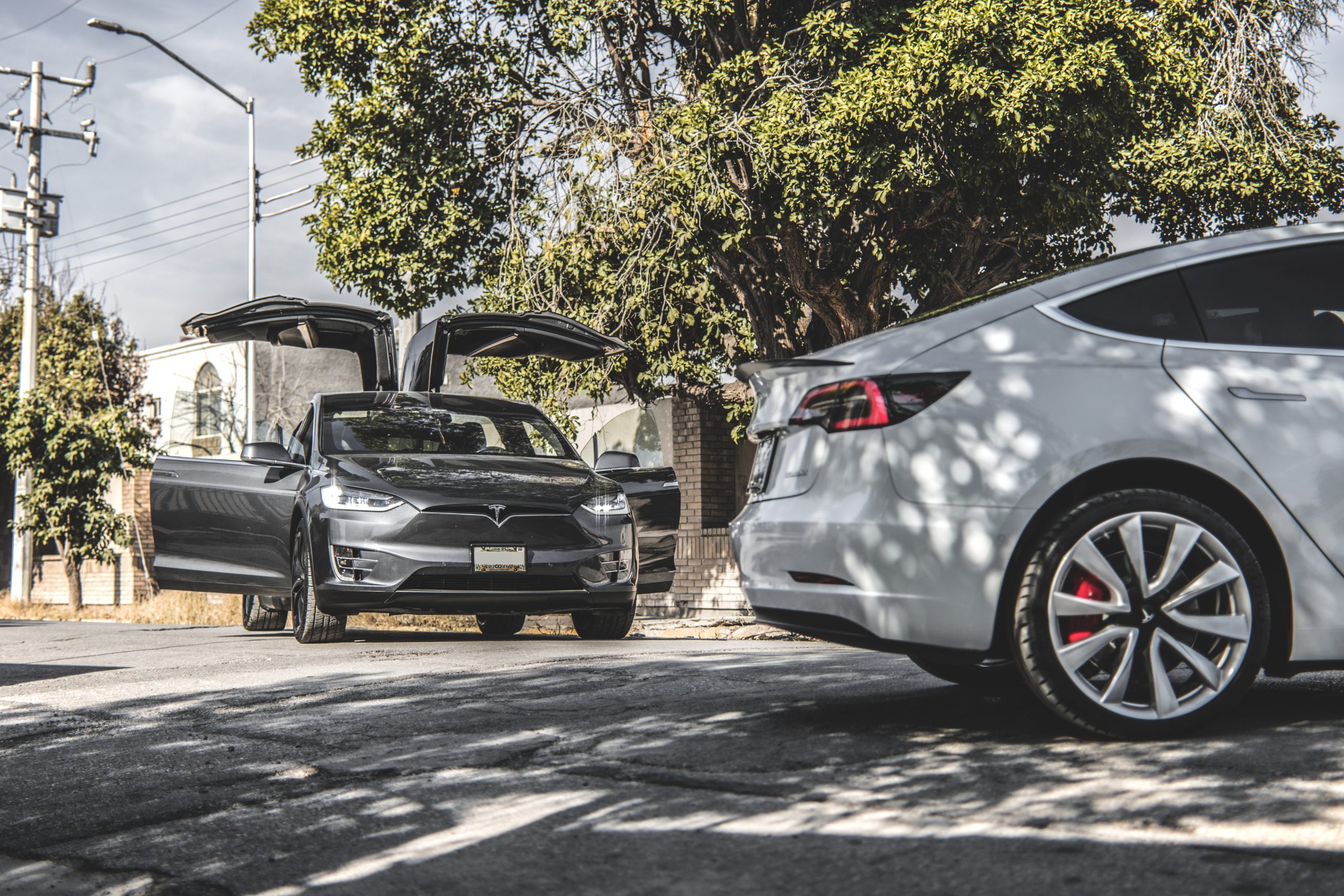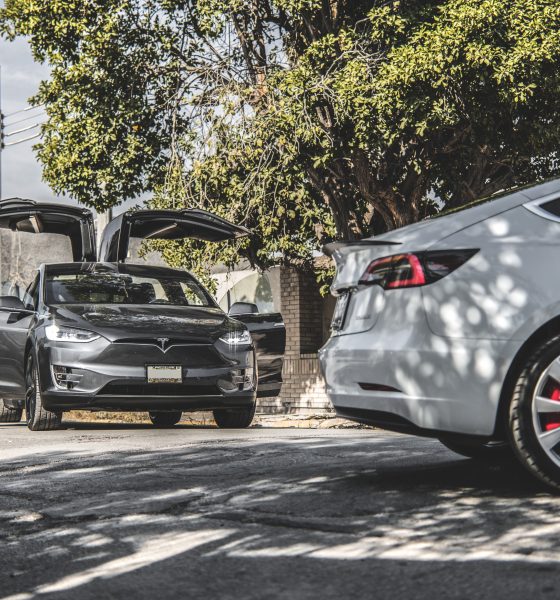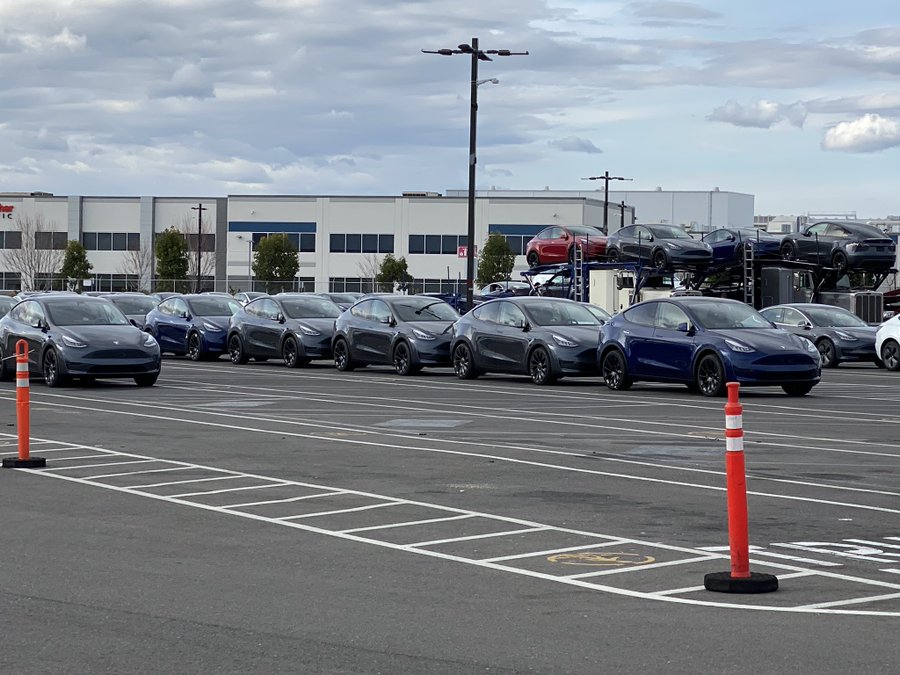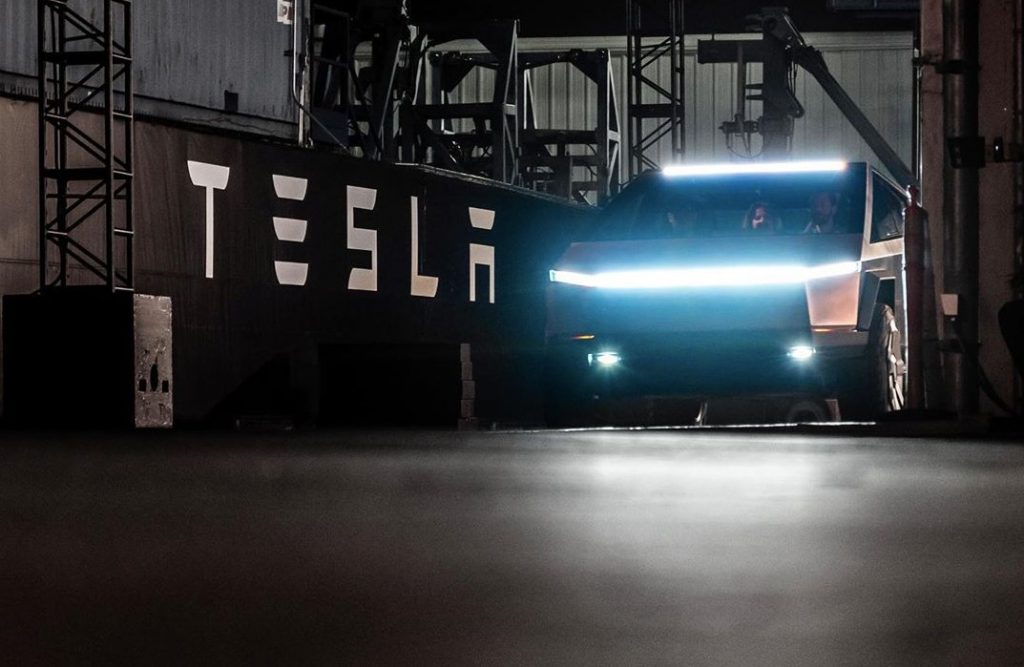

Investor's Corner
Tesla is poised to survive 2020’s worst economic shocks; other automakers, not so much
Just before being proven wrong by Tesla’s first-quarter delivery and production numbers, TSLA bears were hard at work, spreading the now-aging narrative that the company’s electric cars will soon see a drop in demand. Hours before Tesla released its numbers, short-seller Jim Chanos even remarked that he remains “maximum short TSLA,” arguing that the company stands to lose money this year.
What the noted short-seller failed to mention was that this year would likely be downright brutal on the entire auto industry. 2020 only started, but the onset of the coronavirus pandemic has given the whole car market an economic shock that will resonate for a substantial period of time. Tesla will see adverse effects, most likely in the second quarter, but compared to the rest of the industry, the electric car maker may very well be poised to be a company that can not only survive, but thrive in these times of crisis. The same cannot be said for legacy carmakers, or the scheduled “Tesla Killers” that are set to be released in the near future.
Gene Munster of Loup Ventures noted that Tesla’s Q1 production and delivery results show that Tesla is winning despite the current headwinds simply because it has a product that is measurably better than both gas and electric competitors. The Wall Street veteran further added that while the next quarters will be challenging for Tesla and all other automakers like BMW and General Motors, he still expects Tesla to continue reporting 15-25% better delivery results compared to its peers.

A lot of this is due to the company’s products, specifically the Model 3 sedan and the Model Y crossover. Both vehicles are high-volume EVs, and they are designed to disrupt their respective segments. The Model Y, in particular, is designed to be competitive in the crossover market, which happens to be one of the fastest-growing segments in the auto industry today. Munster argued that over time, the price and performance gap between Tesla and its competitors would likely get broader. This is because rivals, such as legacy automakers and their respective EVs, will either have to sell a vehicle that’s at parity with Tesla’s features and range but at a higher price, or a car whose cost is subsidized by the company, resulting in financial strain. For automakers, such is a notable dilemma.
Tesla investor @Incentives101, an economist with a background in macro research, stated in a message to Teslarati that the demand for the electric car maker’s vehicles will largely depend on how distinct they are from other EVs on the market. It’s quite difficult to analyze a product’s demand from a consumer preferences standpoint. In the case of apparel, for example, it is challenging to determine why some consumers prefer Adidas over Nike. The auto industry is quite the same. When one looks at the demand for vehicles, it is difficult to pinpoint why some consumers buy a BMW 3-Series over an Audi A4, or a Mercedes-Benz C-Class; or why some customers buy a Honda Accord instead of a Toyota Camry.
Explaining further, the economist noted that instances such as these usually mean that the products consumers are purchasing are almost perfect substitutes for each other. If one were to study the size, efficiency, performance, and price of any category of cars, one would see that the differences are usually so marginal between each option and segment that consumer decisions often fall on subjective variables such as looks or brand loyalty. This is something that veteran automakers such as Ford rely on, with the company being proud of F-150 owners sticking with the company for years, or at times, even generations.

In the auto sector, there are various tradeoffs that customers are likely to compromise with. For buyers of cars with an internal combustion engine, opting for a low price will likely sacrifice performance, as is the case with the Toyota Camry. Buyers of electric vehicles from traditional automakers, on the other hand, will probably sacrifice something vital such as range for performance, as is the case with the Porsche Taycan. Tesla’s electric vehicles have pretty much eliminated these tradeoffs over time, largely thanks to the company’s own experience in producing and designing electric vehicles and their unique vertical integration, which provides the company unprecedented control over their products and the way they function.
Amidst the coronavirus pandemic, the health and economic shock that the world is facing are unprecedented. These shocks affect everyone, and for automakers, it will all come down to whoever can recover the fastest. Veteran automakers are fighting at a disadvantage as Tesla extends its gap in performance and tech. Tesla, on the other hand, may very well be poised to hit the ground running and crush its competitors in the process. The Model 3 and Tesla’s first-quarter results highlighted how demand for the company’s vehicles would likely be steady. As for demand concerns about Tesla, the economist noted that such concerns remain overblown.
“Until today, demand concerns about Tesla vehicles are overblown and based on a poor understanding of economics. Demand is a function of consumer preferences, basically what consumers value. It is also a function of income, price of substitutes, and few other things. How much each of these variables affects demand is not static. It may be that consumer preferences don’t change but income does, so in a scenario of rapid economic downturn with relatively fast recovery demand for Tesla would behave the same,” the economist wrote.
Disclosure: I have no ownership in shares of TSLA and have no plans to initiate any positions within 72 hours.

Elon Musk
Tesla stock gets latest synopsis from Jim Cramer: ‘It’s actually a robotics company’
“Turns out it’s actually a robotics and Cybercab company, and I want to buy, buy, buy. Yes, Tesla’s the paper that turned into scissors in one session,” Cramer said.

Tesla stock (NASDAQ: TSLA) got its latest synopsis from Wall Street analyst Jim Cramer, who finally realized something that many fans of the company have known all along: it’s not a car company. Instead, it’s a robotics company.
In a recent note that was released after Tesla reported Earnings in late January, Cramer seemed to recognize that the underwhelming financials and overall performance of the automotive division were not representative of the current state of affairs.
Instead, we’re seeing a company transition itself away from its early identity, essentially evolving like a caterpillar into a butterfly.
The narrative of the Earnings Call was simple: We’re not a car company, at least not from a birds-eye view. We’re an AI and Robotics company, and we are transitioning to this quicker than most people realize.
Tesla stock gets another analysis from Jim Cramer, and investors will like it
Tesla’s Q4 Earnings Call featured plenty of analysis from CEO Elon Musk and others, and some of the more minor details of the call were even indicative of a company that is moving toward AI instead of its cars. For example, the Model S and Model X will be no more after Q2, as Musk said that they serve relatively no purpose for the future.
Instead, Tesla is shifting its focus to the vehicles catered for autonomy and its Robotaxi and self-driving efforts.
Cramer recognizes this:
“…we got results from Tesla, which actually beat numbers, but nobody cares about the numbers here, as electric vehicles are the past. And according to CEO Elon Musk, the future of this company comes down to Cybercabs and humanoid robots. Stock fell more than 3% the next day. That may be because their capital expenditures budget was higher than expected, or maybe people wanted more details from the new businesses. At this point, I think Musk acolytes might be more excited about SpaceX, which is planning to come public later this year.”
He continued, highlighting the company’s true transition away from vehicles to its Cybercab, Optimus, and AI ambitions:
“I know it’s hard to believe how quickly this market can change its attitude. Last night, I heard a disastrous car company speak. Turns out it’s actually a robotics and Cybercab company, and I want to buy, buy, buy. Yes, Tesla’s the paper that turned into scissors in one session. I didn’t like it as a car company. Boy, I love it as a Cybercab and humanoid robot juggernaut. Call me a buyer and give me five robots while I’m at it.”
Cramer’s narrative seems to fit that of the most bullish Tesla investors. Anyone who is labeled a “permabull” has been echoing a similar sentiment over the past several years: Tesla is not a car company any longer.
Instead, the true focus is on the future and the potential that AI and Robotics bring to the company. It is truly difficult to put Tesla shares in the same group as companies like Ford, General Motors, and others.
Tesla shares are down less than half a percent at the time of publishing, trading at $423.69.
Elon Musk
Tesla to a $100T market cap? Elon Musk’s response may shock you

There are a lot of Tesla bulls out there who have astronomical expectations for the company, especially as its arm of reach has gone well past automotive and energy and entered artificial intelligence and robotics.
However, some of the most bullish Tesla investors believe the company could become worth $100 trillion, and CEO Elon Musk does not believe that number is completely out of the question, even if it sounds almost ridiculous.
To put that number into perspective, the top ten most valuable companies in the world — NVIDIA, Apple, Alphabet, Microsoft, Amazon, TSMC, Meta, Saudi Aramco, Broadcom, and Tesla — are worth roughly $26 trillion.
Will Tesla join the fold? Predicting a triple merger with SpaceX and xAI
Cathie Wood of ARK Invest believes the number is reasonable considering Tesla’s long-reaching industry ambitions:
“…in the world of AI, what do you have to have to win? You have to have proprietary data, and think about all the proprietary data he has, different kinds of proprietary data. Tesla, the language of the road; Neuralink, multiomics data; nobody else has that data. X, nobody else has that data either. I could see $100 trillion. I think it’s going to happen because of convergence. I think Tesla is the leading candidate [for $100 trillion] for the reason I just said.”
Musk said late last year that all of his companies seem to be “heading toward convergence,” and it’s started to come to fruition. Tesla invested in xAI, as revealed in its Q4 Earnings Shareholder Deck, and SpaceX recently acquired xAI, marking the first step in the potential for a massive umbrella of companies under Musk’s watch.
SpaceX officially acquires xAI, merging rockets with AI expertise
Now that it is happening, it seems Musk is even more enthusiastic about a massive valuation that would swell to nearly four-times the value of the top ten most valuable companies in the world currently, as he said on X, the idea of a $100 trillion valuation is “not impossible.”
It’s not impossible
— Elon Musk (@elonmusk) February 6, 2026
Tesla is not just a car company. With its many projects, including the launch of Robotaxi, the progress of the Optimus robot, and its AI ambitions, it has the potential to continue gaining value at an accelerating rate.
Musk’s comments show his confidence in Tesla’s numerous projects, especially as some begin to mature and some head toward their initial stages.
Elon Musk
Tesla director pay lawsuit sees lawyer fees slashed by $100 million
The ruling leaves the case’s underlying settlement intact while significantly reducing what the plaintiffs’ attorneys will receive.

The Delaware Supreme Court has cut more than $100 million from a legal fee award tied to a shareholder lawsuit challenging compensation paid to Tesla directors between 2017 and 2020.
The ruling leaves the case’s underlying settlement intact while significantly reducing what the plaintiffs’ attorneys will receive.
Delaware Supreme Court trims legal fees
As noted in a Bloomberg Law report, the case targeted pay granted to Tesla directors, including CEO Elon Musk, Oracle founder Larry Ellison, Kimbal Musk, and Rupert Murdoch. The Delaware Chancery Court had awarded $176 million to the plaintiffs. Tesla’s board must also return stock options and forego years worth of pay.
As per Chief Justice Collins J. Seitz Jr. in an opinion for the Delaware Supreme Court’s full five-member panel, however, the decision of the Delaware Chancery Court to award $176 million to a pension fund’s law firm “erred by including in its financial benefit analysis the intrinsic value” of options being returned by Tesla’s board.
The justices then reduced the fee award from $176 million to $70.9 million. “As we measure it, $71 million reflects a reasonable fee for counsel’s efforts and does not result in a windfall,” Chief Justice Seitz wrote.
Other settlement terms still intact
The Supreme Court upheld the settlement itself, which requires Tesla’s board to return stock and options valued at up to $735 million and to forgo three years of additional compensation worth about $184 million.
Tesla argued during oral arguments that a fee award closer to $70 million would be appropriate. Interestingly enough, back in October, Justice Karen L. Valihura noted that the $176 award was $60 million more than the Delaware judiciary’s budget from the previous year. This was quite interesting as the case was “settled midstream.”
The lawsuit was brought by a pension fund on behalf of Tesla shareholders and focused exclusively on director pay during the 2017–2020 period. The case is separate from other high-profile compensation disputes involving Elon Musk.








